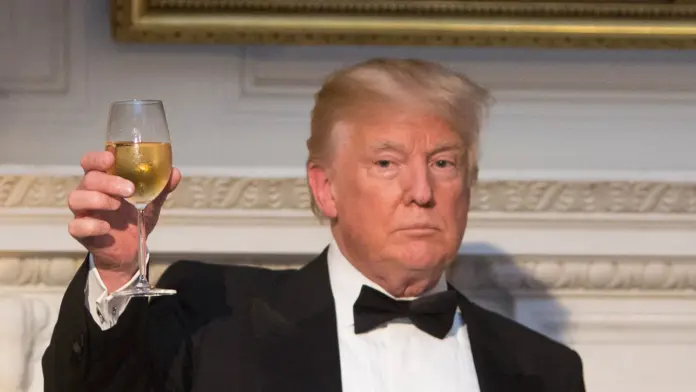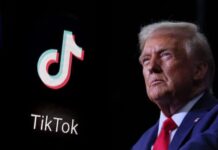Trump Crypto Dinner: Former President Donald Trump broke new ground in what was perhaps one of the most isolated meetings of politics, cryptocurrency, and personal branding when he hosted an exclusive, black-tie dinner at his National Golf Club in Washington, D.C., but only for those who paid the most for a Trump-themed cryptocurrency, $TRUMP. But with those big money entry numbers — the average for a seat is over $1 million — the event has come at the intersection of fascination, confusion, and controversy.
A Dinner Funded by Memecoins
The event was promised as a “thank you” to top holders of $TRUMP coin, the memecoin related to Trump affiliated companies CIC Digital and Fight Fight Fight LLC. It invited the top 220 spenders — they spent an estimated $394 million in purchases of the coin. Invitation only, it was billed as a ‘non-fundraising dinner’ with the disclaimer that Trump wasn’t soliciting funds because he was only appearing as a guest.
But the way the crypto was organised and traded raises a couple of eyebrows. Every transaction of the $TRUMP coin would attract fees, and the organizers, reported to have received nearly $900,000 in fees in just two days after launching the contest, was proof. Trump-linked companies were favored by the financial structure to provide a stream of crypto speculation and trading behavior revenue.
Legality and Loopholes
While the dinner itself has been one of the key points of debate, there has been some discord as to the foreign nationals involved. ‘If you take a look,’ said Molly White, an independent crypto researcher, who noted that 72 percent of wallets tied to contest winners appeared not to belong to U.S. citizens, who were also using offshore exchanges that don’t allow American users.
All of this does nothing to alleviate questions about foreign involvement in U.S. political influence. Foreign nationals are legally prohibited from donating to an American political candidate, but now there’s no legal ban on foreign nationals buying cryptocurrency essentially linked to a candidate.
Most federal officials don’t have that loophole, but presidents do, said Dan Weiner of the Brennan Center for Justice. “What makes this unusual is the public nature, even by the standards of a first Trump administration, of the conflicts here—that doesn’t make it illegal,” he added.
Also read: Is This Elon Musk’s Downfall? Widespread Outage of Elon Musk’s Platform X
A Platform for Profit
This crypto dinner is the latest in a long line of discussions regarding the ways in which Trump has smudged the boundaries between business, politics and brand. The $TRUMP coin itself is itself a business DB asset. The companies linked to Trump fund its creation and some of the revenue comes from trading activity.
But the defenders of the event say the coin and the dinner are nothing more than ‘part of the digital economy’ wholly unconnected to political fundraising. But critics contend that political branding combined with speculative assets equates to a freewheeling conduit whereby a great deal of money from anonymous or foreign sources can be poured into American political sway without a regulating agency keeping tabs.
Public Reaction and Symbolism
Supporters of Trump say the event was yet another example of the former president’s business acumen and tech thinking. For some, it represents everything that is wrong with the new political age — a sort of gamified democracy for which the key is crypto wealth, not civic engagement.
It’s stark contrast. The memecoin dinner somehow managed to present itself as the blockchain equivalent of a de luxe, unregulated, extremely expensive elite club for a traditional campaign event, while sitting squarely under strict donation caps and transparency rules.
The Future of Crypto-Politics
Trump’s crypto dinner, if nothing else, is unlikely to be the last such affair of its kind. With cryptocurrency continuing to develop and political figures considering new types of fundraising and interaction, even more candidates might try Bitcoin. The boundaries between financial investment and political support are fading.








